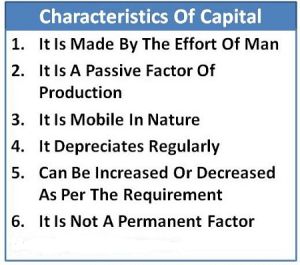Countries‐France- France, a country located in Western Europe, is known for its beautiful scenery, rich history, and delicious food.
Opens in a new windowwww.britannica.com
France country
- Capital: Paris
- President: Emmanuel Macron
- Prime minister: Gabriel Attal
- Area: 643,801 km2 (248,573 sq mi)
- Population: 68.4 million (as of January 2024)
France is a unitary semi-presidential republic with a rich history dating back to the Middle Ages. The country is famous for its medieval cities, alpine villages, and Mediterranean beaches. Paris, the capital of France, is a world-renowned center for fashion, art, and culture. Some of the most famous landmarks in France include the Eiffel Tower, the Louvre Museum, and the Palace of Versailles.
France is also well-known for its wines and cuisine. The country has a wide variety of regional specialties, from the hearty stews of Burgundy to the delicate pastries of Provence.
What is Required Countries‐France
The requirements to visit France will depend on your nationality and the purpose and duration of your stay.
Visa-free travel:
- Citizens of most European countries, as well as the United States, Canada, Australia, and New Zealand, can visit France for up to 90 days without a visa.
Documents required for visa-free travel:
- A valid passport that is valid for at least three months beyond your intended date of departure from FranceOpens in a new windowwww.army.mil Valid passport
- Proof of onward travel (e.g., a plane ticket or bus ticket)
- Proof of sufficient funds to cover your stay in France (e.g., bank statements or credit cards)
Visa requirements:
- If you are not a citizen of a visa-free country, or if you plan to stay in France for longer than 90 days, you will need to apply for a visa. There are different types of visas available, depending on the purpose of your stay. You can find more information about visa requirements on the website of the French Ministry of Foreign Affairs France-Visas [invalid URL removed].
Here are some additional things to keep in mind when planning your trip to France:
- Health insurance: It is recommended that you have health insurance that will cover you for medical expenses during your stay in France.
- Vaccinations: There are no mandatory vaccinations for travelers entering France from most countries. However, it is recommended that you be up-to-date on routine vaccinations, such as measles, mumps, and rubella. You can find more information about recommended vaccinations for France on the website of the Centers for Disease Control and Prevention (CDC) [travel.state.gov].
- Currency exchange: The currency in France is the euro (EUR). You can exchange your currency for euros before you travel or at an ATM in France.
I hope this information helps!
Who is Required Countries‐France
Citizens of certain countries are required to obtain a visa to visit France, depending on their nationality and the purpose of their trip. Here’s a breakdown:
Visa-Free Entry (up to 90 days):
- Citizens of most European countries
- Citizens of the United States, Canada, Australia, and New Zealand
Visa Required:
- Everyone else (except those mentioned above)
- Anyone planning a stay longer than 90 days (regardless of nationality)
- Anyone traveling for reasons other than tourism or business (e.g., work, study)
Resources to Check Visa Requirements:
- French Ministry of Foreign Affairs – France-Visas website (official source): [France Visa Information] ([invalid URL removed])
Additional Notes:
- Even with visa-free entry, you’ll need a valid passport, proof of onward travel, and proof of sufficient funds for your stay.
When is Required Countries‐France

A visa for France is required in two main scenarios:
- Nationality: Your nationality determines if you need a visa. Citizens of most European countries, the United States, Canada, Australia, and New Zealand can visit France for up to 90 days without a visa. Everyone else will likely require one.
- Length and Purpose of Stay: Even if you’re from a visa-free country, a visa becomes mandatory if your stay exceeds 90 days. Additionally, if your purpose for visiting France goes beyond tourism or short-term business, you’ll need a visa. This applies to reasons like work, studies, long-term stays, or volunteering.
Where is Required Countries‐France
The concept of “Required Countries-France” doesn’t refer to a physical location. It refers to the criteria that determine whether someone needs a visa to enter France.
There are two main factors that determine visa requirements for France:
- Your Nationality: Citizens of certain countries, like most European nations, the US, Canada, Australia, and New Zealand, can visit France for up to 90 days without a visa. Everyone else will likely require one.
- Length and Purpose of Stay: Even if you’re from a visa-free country, a visa becomes mandatory if your stay in France exceeds 90 days. This applies regardless of your nationality. Additionally, if your purpose for visiting France goes beyond tourism or short-term business, you’ll need a visa. This includes reasons like work, studies, long-term stays, or volunteering.
So, “Required Countries-France” is more of a category or concept related to visa regulations, not a specific location.
How is Required Countries‐France
The concept of “Required Countries-France” refers to the conditions that make obtaining a visa mandatory to enter France. It’s not a physical location but a set of criteria. Here’s a breakdown of how it works:
Two Main Factors Determine Visa Needs:
- Your Nationality:
- Visa-Free Entry (up to 90 days): Citizens of most European countries, the US, Canada, Australia, and New Zealand fall into this category.
- Visa Required: Everyone else (except those mentioned above) will likely need a visa.
- Length and Purpose of Stay:
- Visa-Free Limit: Even with a visa-exempt nationality, if you plan to stay in France for more than 90 days (regardless of reason), a visa becomes mandatory.
- Purpose Beyond Tourism/Business: If your visit goes beyond short-term tourism or business, you’ll need a visa. This applies to reasons like:
- Work
- Studies
- Long-term stays
- Volunteering
Essentially, a visa is required for France if:
- You’re not a citizen of a visa-free country (as mentioned above)
- OR
- You plan to stay longer than 90 days
- OR
- Your visit has a purpose other than short-term tourism or business.
Remember, these are general guidelines. The specifics can vary depending on your individual circumstances. It’s always best to check the official French Ministry of Foreign Affairs website (France-Visas) for the latest and most accurate information: [France Visa Information] (You can search for this online).
Case Study on Countries‐France
Introduction:
France, a beautiful country in Western Europe, boasts a rich history, stunning landscapes, and a vibrant culture. This case study delves into various aspects of France, exploring its political system, economy, social fabric, and its role in the global arena.
Political System:
- Republic: France is a unitary semi-presidential republic.
- Executive Branch: The President is the head of state and commander-in-chief of the armed forces. The Prime Minister leads the government and implements policies.
- Legislative Branch: The Parliament consists of two houses: the National Assembly (lower house) and the Senate (upper house).
Economy:
- Developed Nation: France has the world’s seventh-largest nominal GDP and a highly developed market economy.
- Key Industries: Tourism, agriculture, luxury goods, aerospace, and automotive sectors are significant contributors.
- Challenges: France faces challenges like unemployment and high public debt.
Social Fabric:
- Multicultural: France is a diverse nation with a rich tapestry of ethnicities and cultures.
- Social Welfare System: France has a strong social safety net with universal healthcare and social security benefits.
- Education: The education system emphasizes academic excellence and is highly centralized.
Global Role:
- European Union: France is a founding member of the European Union and a major player in shaping its policies.
- International Influence: France is a permanent member of the United Nations Security Council and actively participates in global affairs.
- Cultural Influence: French language and culture hold significant influence worldwide.
Areas for Further Exploration:
- Environmental Issues: Analyze France’s efforts in combating climate change and promoting sustainability.
- Immigration: Explore the challenges and opportunities presented by immigration in France.
- Technological Innovation: Investigate France’s role in technological advancements and its future plans.
Conclusion:
France is a complex and fascinating country with a significant global presence. This case study provides a basic framework for understanding its key characteristics. By delving deeper into specific areas of interest, one can gain a more comprehensive understanding of the nation and its role in the world.
White paper on Countries‐France
Executive Summary
This white paper provides a comprehensive overview of France, a key player in Europe and on the global stage. It examines France’s political system, economic landscape, social fabric, and its international influence. The paper also identifies potential areas for further exploration.
1. Introduction
France, a nation steeped in history and culture, boasts breathtaking landscapes, a vibrant society, and a strong global presence. Understanding France is crucial for navigating the complexities of Europe and the wider world. This white paper offers a detailed analysis of various aspects of France.
2. Political System
- Semi-Presidential Republic: France operates under a semi-presidential system. The President acts as the head of state and commander-in-chief, while the Prime Minister leads the government and implements policies. Both the President and the National Assembly (lower house of parliament) are directly elected by the people, creating a potential for power struggles.
- Legislative Branch: The bicameral Parliament consists of the National Assembly and the Senate (upper house). The National Assembly holds more power, passing laws and approving government appointments.
- Challenges: France’s political system can be susceptible to periods of cohabitation, where the President and Prime Minister are from different parties, potentially leading to gridlock. Additionally, voter apathy and euroscepticism are ongoing concerns.
3. Economy
- Developed Nation: France boasts the world’s seventh-largest nominal GDP and a diversified market economy.
- Key Sectors: Tourism, agriculture, luxury goods, aerospace, and automotive industries are major contributors to the economy. France is also a leader in nuclear energy production.
- Challenges: France faces economic challenges such as unemployment, particularly amongst youth, and a high national debt. Integration with the Eurozone presents both opportunities and limitations.
4. Social Fabric
- Multicultural Society: France is a diverse nation with a rich tapestry of ethnicities and cultures, reflecting its colonial history and ongoing immigration.
- Social Welfare System: France has a strong social safety net with universal healthcare, unemployment benefits, and social security programs. This system contributes to a high standard of living but also faces sustainability concerns.
- Education: The French education system emphasizes academic excellence and is highly centralized. Universities play a significant role in shaping French society.
5. Global Role
- European Union: A founding member of the European Union, France is a major player in shaping its economic, political, and security policies.
- International Influence: France is a permanent member of the UN Security Council and actively participates in global affairs, promoting peace and security.
- Cultural Influence: French language and culture hold significant influence worldwide, particularly in former colonies and francophone countries.
6. Areas for Further Exploration
- Environmental Issues: Analyze France’s efforts in combating climate change and promoting sustainability. Explore its transition towards renewable energy sources.
- Immigration: Investigate the challenges and opportunities presented by immigration in France. How does France integrate its diverse population?
- Technological Innovation: Examine France’s role in technological advancements, particularly in areas like artificial intelligence and aerospace. How is France preparing for the future?
7. Conclusion
France remains a crucial player in shaping the global landscape. This white paper has provided a foundational understanding of its political system, economy, social fabric, and international influence. Further exploration of specific areas can offer deeper insights into the complexities and future prospects of this nation.
Industrial Application of Countries‐France
France has a rich industrial history and continues to be a major player in various industrial sectors. Here’s a breakdown of some key areas of French industrial application:
Traditional Strengths:
- Aerospace: France is a global leader in the aerospace industry, boasting companies like Airbus, Safran, and Thales. They contribute significantly to aircraft design, manufacturing, and space exploration.
- Luxury Goods: French craftsmanship and design are world-renowned. Luxury brands like Chanel, LVMH, and L’Oreal dominate the fashion, cosmetics, and personal care industries.
- Nuclear Energy: France is a leading producer of nuclear energy, utilizing it for a significant portion of its electricity generation. Technological advancements in nuclear power plants are a focus area.
- Automotive: Major car manufacturers like Peugeot, Renault, and Citroën contribute significantly to the French economy. Innovation in electric vehicles and autonomous driving technologies is ongoing.
Emerging Applications:
- Renewable Energy: France is pushing for cleaner energy sources, investing in wind, solar, and geothermal power. Technological advancements for efficient energy storage are being pursued.
- Additive Manufacturing (3D Printing): This technology is gaining traction in France, with applications in aerospace, automotive, and medical sectors for creating complex prototypes and components.
- Digitalization: French industries are increasingly adopting automation and digitalization to improve efficiency and productivity. This includes industrial robotics, artificial intelligence applications in manufacturing, and the “Internet of Things” for better production line management.
Government Support:
The French government actively supports industrial development through various initiatives:
- “New Industrial France” Program: This program promotes innovation and modernization across various sectors, focusing on digitalization, sustainability, and competitiveness.
- Research & Development: France invests heavily in research and development, fostering technological advancements applicable to various industries.
- Innovation Clusters: Regional clusters focusing on specific industries are established to facilitate collaboration and knowledge sharing between companies, research institutions, and investors.
Challenges and Opportunities:
- Global Competition: France faces stiff competition from other industrial powerhouses globally. Adapting to changing market needs and technological advancements is crucial.
- Sustainability: Integrating sustainable practices across the entire industrial value chain is a growing priority.
- Skilled Workforce: Developing and maintaining a skilled workforce equipped with the latest technologies is essential for continued industrial success.
Conclusion:
France’s industrial landscape is dynamic and evolving. While leveraging its traditional strengths, France is strategically investing in emerging technologies and sustainability to solidify its position as a global industrial leader.





